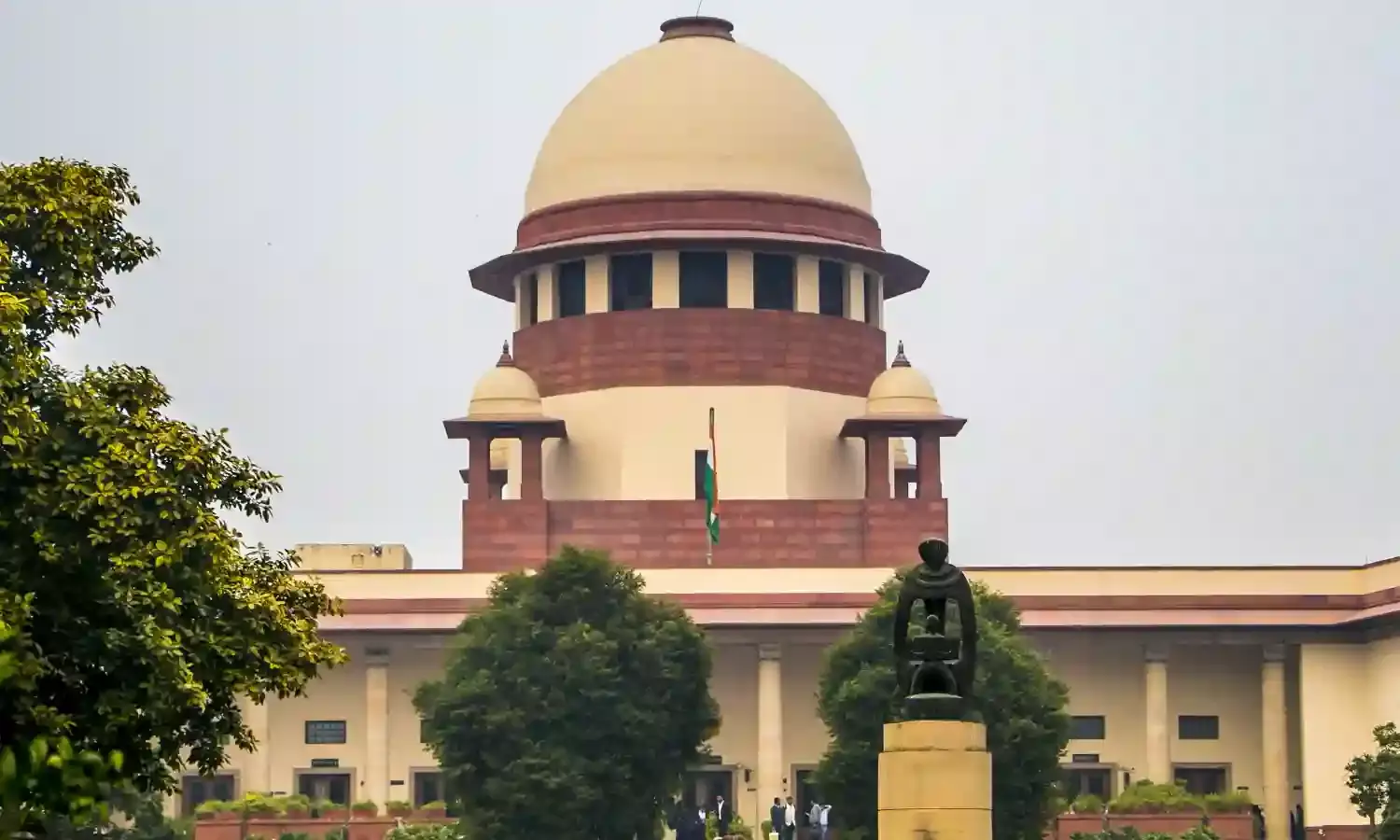When Rape Victim’s Story Is Creditworthy, Acceptable Testimony Would Prevail Over Apparent Insufficiency Of Medical Evidence: Supreme Court
The Supreme Court was considering an appeal filed against the order of the Chhattisgarh High Court convicting and sentencing the accused appellant under Sections 376 (2), 450 of the IPC and Section 4 of the POCSO Act.

The Supreme Court recently upheld the conviction of a man in a POCSO case and ruled that in cases of offences committed under Section 376 of the IPC, when the story of the victim girl is found credit-worthy, the acceptable testimony of the victim would prevail over the apparent insufficiency of medical evidence.
The Apex Court was considering an appeal filed against the order of the Chhattisgarh High Court convicting and sentencing the accused appellant under Sections 376 (2), 450 of the Indian Penal Code, 1860 and Section 4 of the Protection of Children from Sexual Offences Act, 2012.
The Division Bench of Justice Sudhanshu Dhulia and Justice N.V. Anjaria held, “In cases of offences committed under Section 376, IPC, when the story of the victim girl as told in the evidence is found credit-worthy, the apparent insufficiency of medical evidence pitted against acceptable testimony of the victim, the latter would prevail.”
Factual Background
It was alleged that, finding a 15-year-old girl (victim) alone in the house, the appellant-accused entered the house and sent her brother to bring a pack of chewing tobacco. The accused forced the victim to lie on the cot lying in the porch of the house, gagged her mouth and then committed sexual intercourse. On seeing the victim’s brother, the appellant-accused fled away from the house, threatening the victim not to tell anything to anyone.
The victim narrated the entire story of the incident to her parents. A police complaint was lodged, and an FIR was registered. The victim was subjected to medical examination, a statement under Section 164 of the Code of Criminal Procedure, 1978 was recorded, and a criminal case was registered for the offences as above, which was tried before the Special Court culminating in the appellant’s conviction and sentence.
Reasoning
The Bench found that the evidence of the prosecutrix was not only clear and consistent in the narration of the incident but natural as well. The sequence of events was duly corroborated from the evidence of the other witnesses. The facts relating to the actual commission of the offence and attendant circumstances thereof matched in the testimony of prosecutrix and her brother.
“An attentive look at the evidence of the prosecutrix (PW-2) would reveal that her testimony in narrating the incident and to describe what happened with her, is natural. Even when read independently, excepting the oral testimonies of others highlighted above, it inspires confidence and veracity for its clarity and consistency. The contention that non-availability of emphatic medical evidence about occurrence of physical intercourse and absence of external injury marks make it imperative to doubt and disregard the evidence of the prosecutrix, could hardly be countenanced”, the Bench mentioned.
It was also noticed that the evidence of the medical officer spoke about the absence of external injury marks on the genitals of the victim. However, the Bench reiterated the proposition that the corroboration from the medical evidence is not sine qua non when the cogent evidence of the victim is available. Reference was made to the judgment in Lok Mal alias Loku vs. State of Uttar Pradesh (2025).
The Bench further noted, “It is an opt-reiterated dictum of law that in cases of rape, the testimony of the prosecutrix alone may be sufficient and sole evidence of the victim, when cogent and consistent, could be properly used to arrive at a finding of the guilt.” The Bench found no material discrepancy on comparison of the evidence of the two witnesses. “Even otherwise, discrepancies in evidence which are of minor nature not going to the root have to be ignored”, it added.
The Bench thus held, “The crux of the incident, of accused overpowering the victim and committing forcible act by forcing her to the bed, could be clearly established from the totality of evidence adduced by the prosecution. Merely because the medical evidence was less corroborative and less supportive or absent in details or indictive of no external injuries. It in no way weakened the prosecution case. Sole testimony of the victim was a strong evidence to rely on along with available attendant evidence.”
Thus, upholding the High Court’s judgment, the Bench dismissed the appeal.
Cause Title: Deepak Kumar Sahu v. State of Chhattisgarh (Neutral Citation: 2025 INSC 929)

